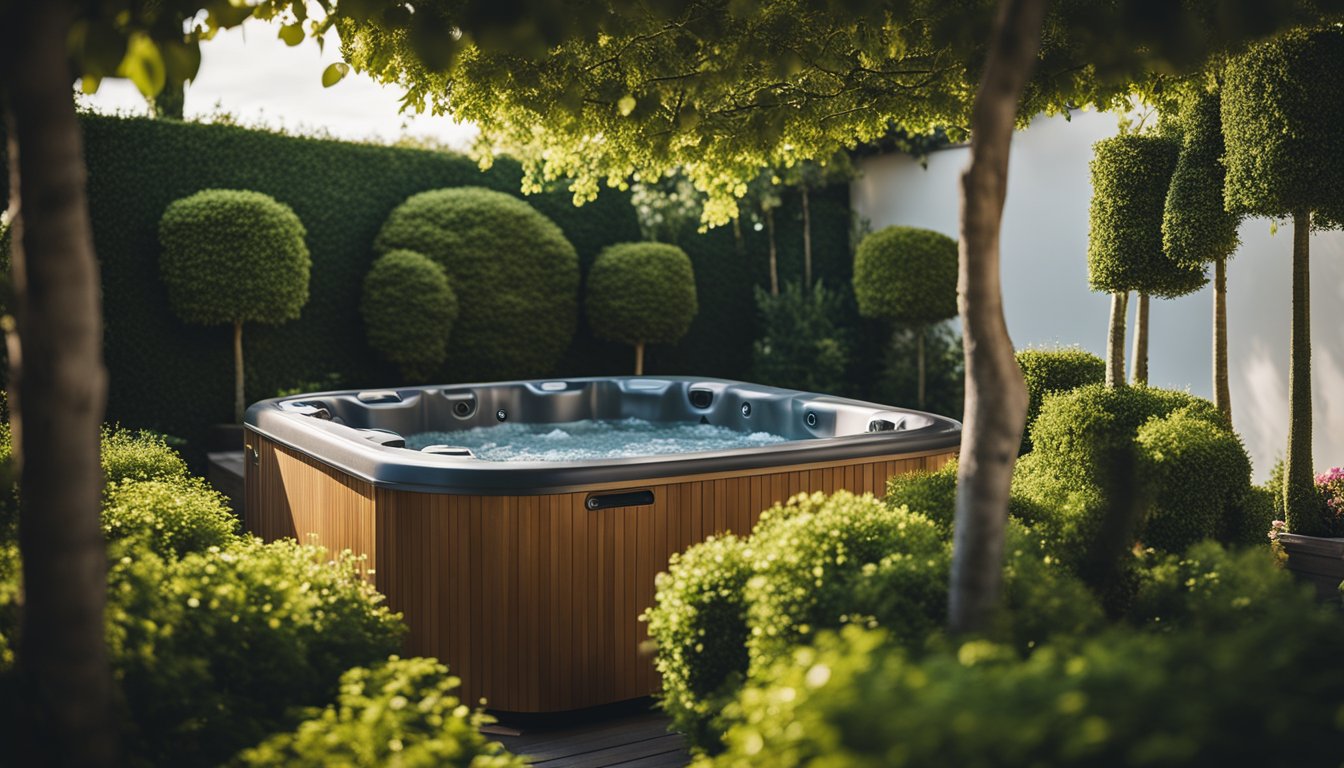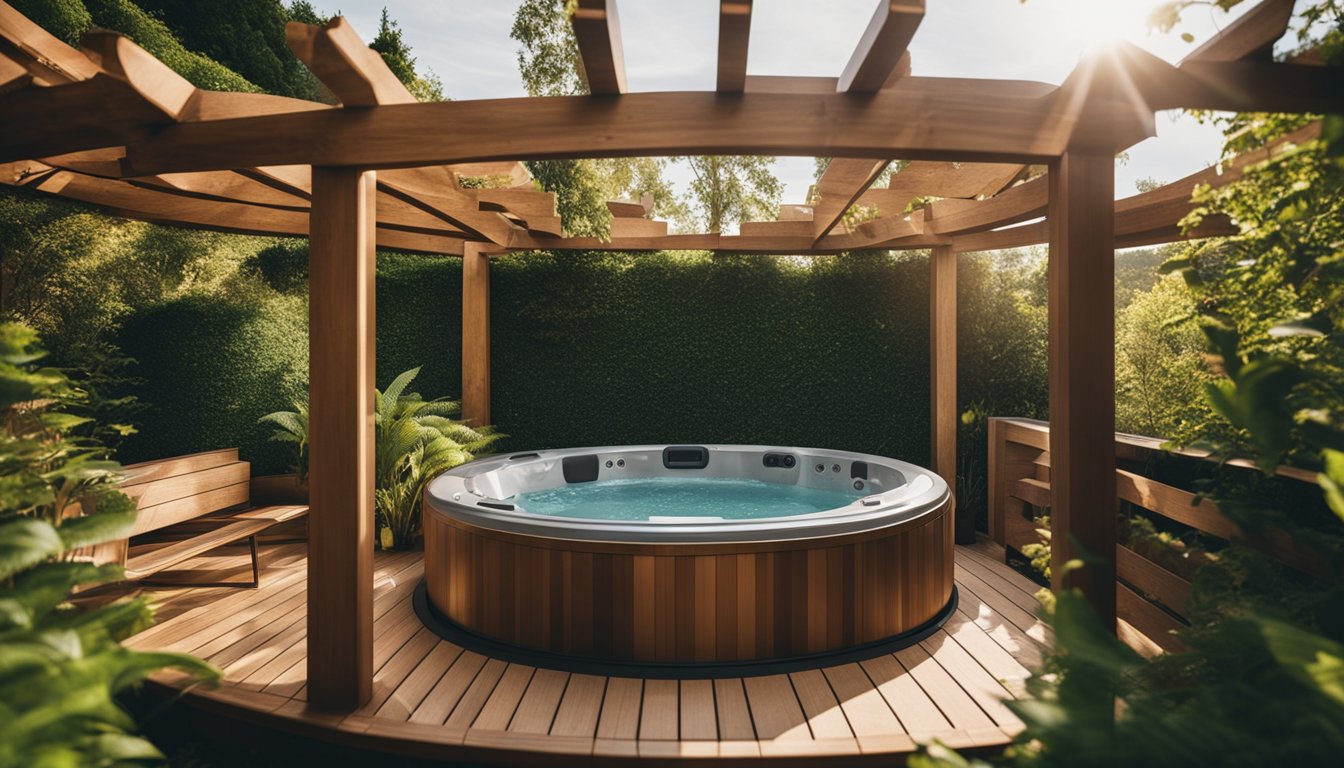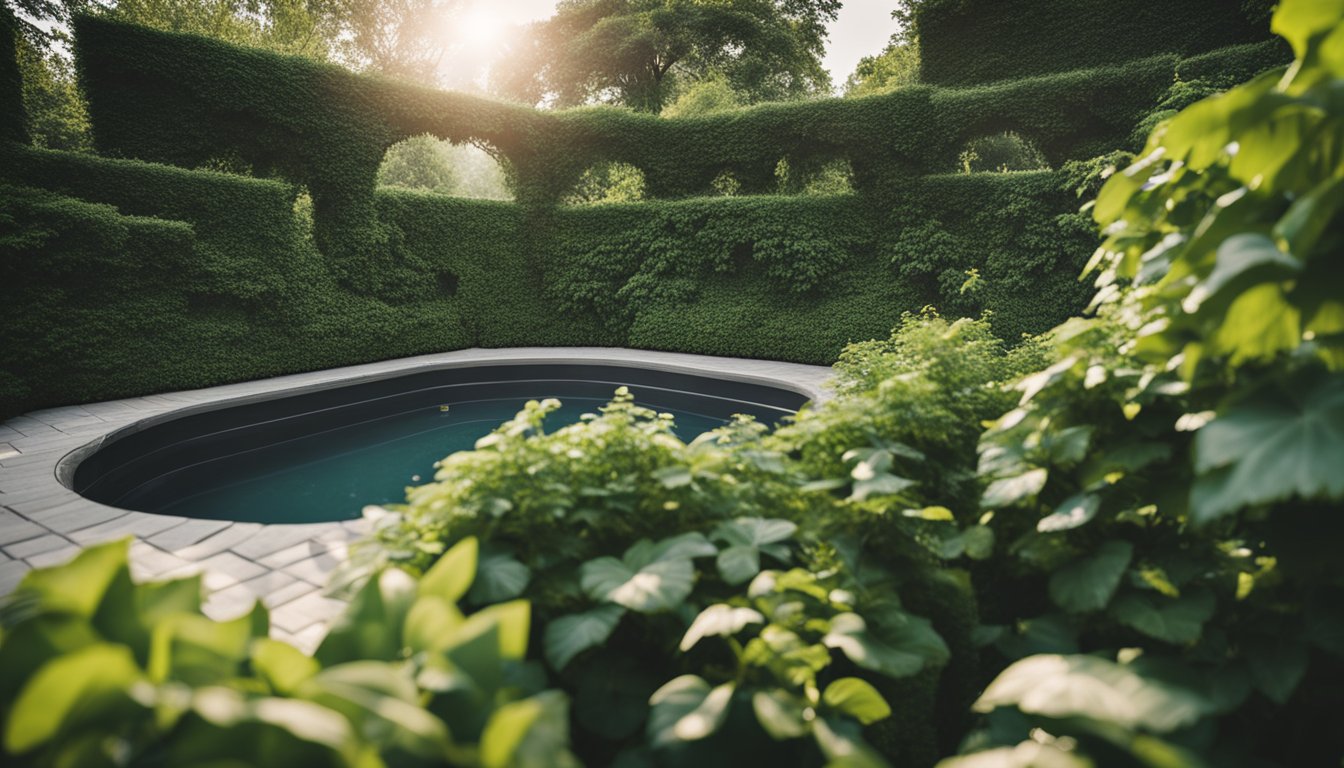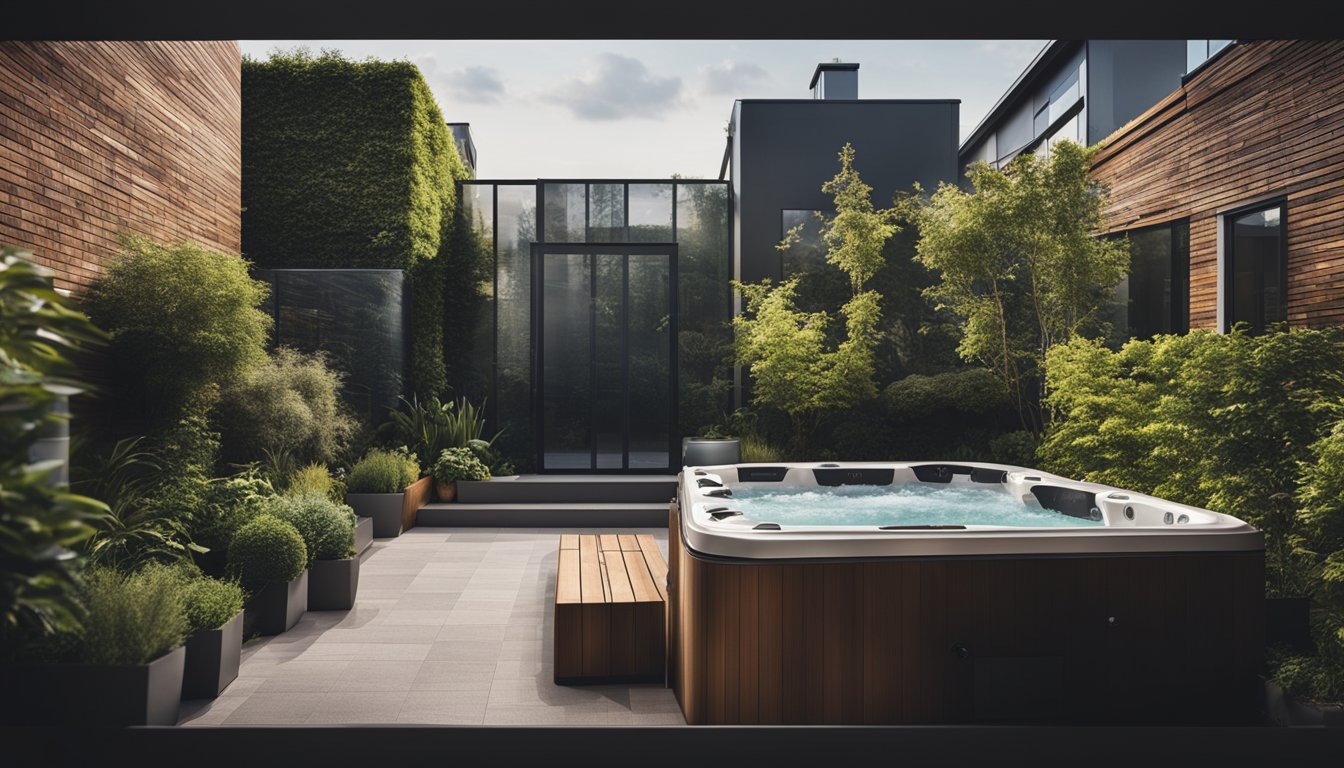Late updated: 25 Jan 2025 13:01
Written by: James Whitaker
Garden Hot Tub Privacy Solutions For City Homes: Effective Strategies for Urban Serenity
Setting up a hot tub in a city garden offers a delightful retreat right at home, but privacy can be a significant concern. By integrating clever design elements and landscaping strategies, we can transform any outdoor space into a secluded haven for relaxation. Whether it's through lush greenery, stylish screens, or multi-functional structures, there are numerous ways to enhance privacy without sacrificing aesthetics.

In urban settings, space is often limited, but that doesn’t mean we must compromise on our hot tub privacy. By selecting the right materials and layout, even the smallest spaces can offer an intimate and tranquil environment. Incorporating plants and natural materials not only boosts privacy but contributes to a more inviting and serene ambiance.
Customisation is key when dealing with privacy for garden hot tubs. Portable enclosures and decorative elements can be tailored to suit different budgets and tastes, providing flexibility and effectiveness. As we explore various options, we’ll ensure our outdoor living space becomes a cherished and private retreat.
Key Takeaways
- Effective privacy solutions can enhance outdoor living spaces.
- Natural elements contribute to aesthetic and privacy needs.
- Tailoring solutions to space and budget ensures optimal results.
Hot Tub Privacy Structures

In creating a serene hot tub environment within city homes, selecting the right privacy structures is crucial. These structures not only offer seclusion but also contribute to the overall aesthetic of your garden. We explore various options and materials, focusing on their suitability and durability.
Understanding Different Structures
Pergolas, gazebos, and trellises are popular choices for complementing a hot tub deck. Pergolas provide a semi-open roof with beams, offering partial shade and a place for climbing plants. Gazebos are fully enclosed structures that offer complete privacy and protection from the elements, ideal for rainy regions. Trellises, often covered with vines or faux-ivy, offer natural barriers and can be combined with retractable screens for added flexibility.
Fencing options include wooden fences for a classic look, lattice screens for a touch of elegance, and decorative privacy walls, which can be both functional and stylish. In urban settings, a hot tub enclosure can ensure complete seclusion. Stone walls offer a robust alternative, while shade sails and canopies provide both shade and privacy, especially in warmer climates.
Choosing Weather-Resistant Materials
When selecting materials for hot tub privacy structures, weather resistance is key to ensure longevity. Bamboo is a sustainable choice; its natural resilience makes it perfect for creating living or decorative barriers. Wood, when treated properly, offers warmth and aesthetic appeal; opting for cedar or redwood ensures durability against moisture.
For metal structures, galvanised steel or aluminium with powder coating resists rust and weathering. Faux-ivy privacy screens can enhance aesthetics without sacrificing durability. Shade sails made from high-quality UV-resistant fabrics offer excellent protection from the sun while maintaining structure. Selecting the right materials will enhance the longevity and appearance of your hot tub area.
Enhancing Hot Tub Privacy Naturally

Incorporating natural elements for hot tub privacy is both effective and visually pleasing. By utilising plants and greenery, we can create secluded spaces while ensuring visual and acoustic privacy for a serene outdoor escape.
Integrating Plants and Greenery
Strategically placed plants are invaluable in creating natural privacy around a hot tub. Privacy trees, such as evergreen or columnar varieties, serve as an excellent barrier all year round. We recommend climbing plants like ivy or lush greenery for their dense foliage, which conceals without occupying much space.
Ornamental grasses and hedges can define boundaries while maintaining a soft appearance. Bamboo is particularly useful thanks to its height and rapid growth, offering a dynamic option to block unwanted views. It's vital to consider local regulations regarding plant types to avoid planting species that are non-native or invasive.
Designing for Visual and Acoustic Privacy
For additional privacy, integrating a living wall or vertical garden around the hot tub can beautifully obscure views. As a bonus, tall plants can also serve as sound barriers, dampening noise from the surrounding area for a peaceful retreat.
Enhanced privacy can also be achieved through landscape fencing or privacy screens. Options such as bamboo screens or retractable privacy screens offer flexibility, allowing us to adjust as needed. Combining these natural solutions with elements like a water feature can mask noise, creating an ideal balance between solitude and aesthetics.
By selecting complementary plants and design features, we create a harmonious outdoor space that elevates both the function and appearance of our garden oasis.
Frequently Asked Questions

When addressing privacy solutions for garden hot tubs in city homes, several effective strategies emerge. Constructing screens, selecting suitable plants, and considering retractable options are vital. We'll explore cost-efficient privacy methods, and examine the role of gazebos and creative enclosures.
How can one construct a privacy screen for an outdoor hot tub in an urban home?
We can utilise materials like bamboo or weather-resistant fabric to build a privacy screen. Bamboo walls are aesthetically pleasing and easy to maintain, while fabric screens provide flexibility in design. Opting for durable materials ensures longevity despite city conditions.
Which plants offer the best natural privacy for an outdoor hot tub area?
Choosing tall, dense plants such as bamboo, holly, or privet can create effective privacy barriers. These plants grow quickly and reach significant heights, forming a natural screen. Incorporating potted plants allows us to arrange them as needed, offering additional flexibility.
What options are available for affordable hot tub privacy in a city garden setting?
Some affordable solutions include using lattice panels or outdoor curtains. Lattice panels can be customised with climbing plants for added coverage. Additionally, strategically placing patio furniture or using existing garden structures can enhance privacy without significant cost.
What are the advantages of using a retractable privacy screen around a hot tub?
Retractable screens provide flexibility, allowing us to adjust the level of privacy according to our needs. They can be retracted to enjoy full sunlight or extended for complete seclusion. This adaptability is particularly beneficial in a bustling city environment.
Can a gazebo provide adequate privacy for a hot tub in a city garden?
A gazebo offers not just privacy but also protection from the elements. With the right design, gazebos can incorporate side panels or curtains, enhancing the sense of seclusion. This option blends well with various garden styles, providing a stylish solution.
What are some creative enclosure ideas for enhancing hot tub privacy?
Creative enclosures can include pergolas with adjustable slats or even trellises with climbing plants. We might also consider combining different materials like stone and wood to create a unique aesthetic. These enclosures serve as both functional and decorative elements, enriching the garden space.
